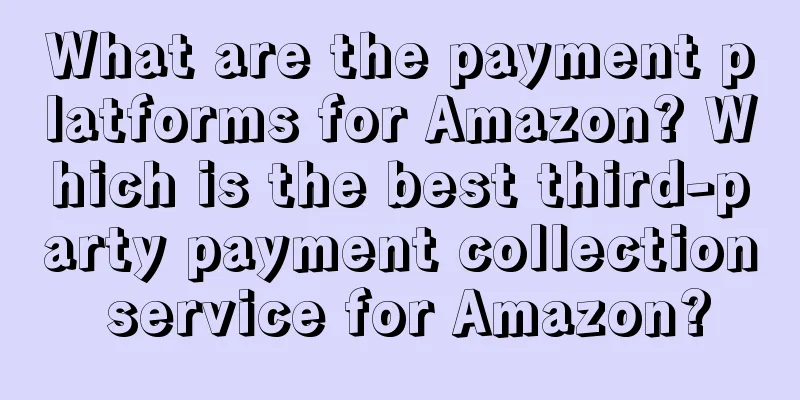Qiwei will officially start charging on May 7! Should I leave or stay? How to choose and adjust? All the answers are here!

A few days ago, I received an important reminder from Qiwei: As an important position in the private domain ecology, the day of adding corporate WeChat friends and communities, from free to paid, has finally come. From now on, we can no longer say that the private traffic of WeChat Enterprise is free traffic. To be more precise, it should be limited free traffic. So the question is, should enterprises flee or stay? Should they even continue to engage in private domains? If they do, what changes should they make? At this time, I'm afraid every company should think carefully about it. Today, I will also talk about these issues from the global perspective of enterprise consumer digital operations . 1. How does Qiwei charge?First of all, we still need to figure out what is the charging of WeChat Enterprise? What fees does it charge and how does it charge? According to the official announcement of the company, starting from May 7, 2023, the total number of contacts and groups that each company can add to the company's WeChat account (number of friends + number of group members) will be free for up to 2,000 people, and a fee of 0.1 yuan per person will be charged for those exceeding 2,000, as shown in the figure below. I can simply understand that they charge per person , and they charge every year . However, customers who have been added within the purchase quota each time (customers who join the group) can continue to use the enterprise micro-service for free after the quota expires. At the same time, once a customer deletes a friend or leaves the group, he or she is equivalent to a new customer, and the new customer cannot add the company's WeChat account or invite to join the group, unless the company purchases the quota again. It is easier to understand with an example:
Having said that, I believe the bosses can figure out the math. Therefore, joining a company’s WeChat account and creating a community is no longer free, but will be charged in the future. The more people you join and the more groups you create, the higher the cost. 2. Should we bet on Qiwei to develop private domain?My answer is: We should do WeChat for business, but not with a bet-on-it mentality, because it is not the entirety of the private domain. Private domain operations are only a subset of global consumer operations, and enterprise WeChat is only a touchpoint in the private domain traffic pool matrix. Although it is now used to communicate with customers, service and care are very convenient and efficient. However, from an omni-channel perspective, the private traffic pool also includes official accounts, member applets, content communities, proprietary apps, and offline experience spaces. It is the closed loop of operations formed by WeChat for Business and these touchpoints that promotes customer stickiness, conversion, and repeat purchases. Image source: Yan Tao, "Super User Growth" Especially for companies that have reached a certain scale and size, the business and channels are even more complex, and the WeChat touchpoint cannot have a decisive impact on the business. However, making good use of WeChat for Business can greatly enhance the company's consumer digital operation capabilities and ultimately achieve the goal of user repurchase and loyalty. Therefore, most companies should attach importance to and utilize WeChat for Business, but the mentality is not to bet on it or be the only one. Instead, they should establish a matrix of private domain traffic as soon as possible. 3. What should companies do when faced with charges?What is the right thing for companies to do regarding this charge? My answer is: abandon the "quantity-only" mentality + leek mentality; firmly adhere to the 80/20 rule + asset thinking. What does it mean? Listen to me carefully. Abandon the "quantity only" mentality and the leek mentality . The mentality of this kind of enterprise is to add all the users first, as long as they can be reached, there is a chance to sell, and if they can make a profit, they will make a profit, and at worst, they will delete a wave. Besides, if the quantity is increased, the KPI will look better and it will be easier to report to the boss, after all, they are all workers. We don't criticize whether this mentality is right or wrong, but at least it does not conform to the "user-centric" concept. Treating users as leeks may bring short-term benefits, but it is definitely not sustainable. We all know that the essence of private domain operations is user relationships. The above approach will definitely not be able to establish a good trust relationship with users. And such a mentality can easily cause huge losses to the company in the end. In one of my private domain classes last year, a student shared the painful lessons of their company. The company spent three years and invested tens of millions to develop the WeChat private domain. Through the efforts of nearly 10,000 leaders, it accumulated tens of millions of WeChat users. Due to the lack of careful consideration in the early stage and the blind collection of people and followers, not only was there no conversion, but there was also no activity. The cost and energy spent on reactivating and screening on the original basis was enormous. In desperation, their company gave up the project. This lesson is not an isolated case. In my opinion, the company lost not only tens of millions of dollars in investment, but also the confidence of the team, the trust of users, and even lost an opportunity to overtake others. In cases like this, I think it all comes down to the fact that the business owners (organizational culture) do not really value, respect, or fear the users. I often see that some companies spend a lot of money to "invite" users to the group (private domain) at the beginning, but they don't have effective continuous operation after inviting them in. They post advertisements frequently and actively, and never respond to complaints in time. Finally, the group becomes a dead group. Once the users are inactive, the operation staff will be arranged to clear the fans through software. How can a group with only advertisements and no services be active? No matter how loyal the users are, who can face daily promotions? How can users be active if they don’t feel cared for, experienced, and sincere? Finally, in the midst of the corporate addition and subtraction, trust was lost. Therefore, the "quantity"-only mentality and the leek mentality are unacceptable. However, we must firmly adhere to the 80/20 rule and asset thinking . This approach requires enterprises to understand from the beginning that since WeChat for Business is a private domain, it is to serve important users in a private space. It must not be unselected and anyone can be put in it. It is a limited space that provides more in-depth and sophisticated services than the public domain. With this concept, users will naturally not be treated as leeks, but rather as assets. The so-called assets are to be appreciated in the future, that is, if a user spends 100 yuan a month through the operation services of the enterprise micro-blog, he can spend 200 yuan in the future, which is called adding value to the enterprise. Therefore, the 80/20 rule reminds us that 20% of important users contribute 80% of revenue, and accordingly, the 80% of resources should give priority to serving 20% of users. Because those 20% users are the high-value assets of the company. Just like the Black Gold Plus paid membership of Kidswant, the consumption amount of one member is equivalent to that of 13 ordinary members. Therefore, in response to this adjustment in the charges for WeChat Enterprise, the first thing that enterprises need to change is the target group: who should be given priority to join WeChat Enterprise and be served? In my book Super User Growth, I talked about three basic principles:
Based on this principle, I have put it into practice in consulting projects for consumer digital operations in the past. I first helped some brand companies to stratify their populations, and then designed micro-business operation plans for different groups to increase the conversion rate of new customers and the repurchase rate of old customers. We helped a company to launch a repurchase acceleration plan for a group of old customers with low repurchase rates, and the final result was surprising. When summarizing and reviewing the situation, we specifically studied the portrait of a typical user and found that after three months of enterprise micro-operation, the amount of his re-consumption in just three months was twice as high as that in the past year; in terms of interactive behavior, he also participated in four points redemptions, two online activities, and had multiple 1v1 communications with enterprise micro-customer service. From this we can clearly see that targeted and purposeful operations can quickly activate users and create sales results. An inactive old user is activated to become a high-value user. This is exactly the goal of our operation and the result that the company cares about. With the help of WeChat Enterprise, we also carry out different operation plans for different groups, such as how to improve the conversion rate of trial users; how to increase the second repurchase rate for new users, etc.; we have helped companies increase their second repurchase rate from the original 9% to 21%. In the current market, these improvements will help companies reduce costs, increase efficiency and enhance competitiveness. We also recommend that companies promote this model nationwide. Final ThoughtsI believe that when companies can always realize the importance of the 80/20 rule and asset thinking, and apply them to the operation of WeChat for enterprises, it will be easy to do things correctly and obtain long-term and sustainable value. As the old saying goes, a gentleman's nature is not different from others, he is just good at making use of things. Enterprise WeChat is a tool. It is not important whether it charges a fee or not, and it does not matter how much it charges. What is important is that it can help companies achieve growth. Author: Yan Tao Source: WeChat public account "Yan Tao Sanshou (ID: yantao-219)" |
<<: 90% of brands are in the No. 1 position, but sales have not had a good life
>>: Share 5 secrets of brands that have grown against the trend
Recommend
What is an Amazon Associate Account? What are the pros and cons?
There are many merchants doing business on Amazon ...
Before starting a business, learn how to “generate traffic” first!
This article introduces in detail the ways and met...
"Counterattack" Uniqlo, with more than 10 million private domain users, how does the most popular domestic fast fashion brand layout its private domain?
This article focuses on the local fast fashion bra...
Why does Amazon only sell one order a day?
Amazon merchants sometimes encounter a sudden surg...
Xiaohongshu is connected with Meituan, and Xiaohongtuan is launched in internal testing
Following Xiaohongxing, Xiaohongmeng and Xiaohongl...
Private Domain Operation: Where do the 20 million private domain users of Liby, the No. 1 domestic daily chemical brand, come from?
In an increasingly competitive market environment,...
How to split orders on Shopee? How to ship goods?
Merchants who open stores on Shopee should pay att...
Does Wish need a deposit to join? What are the requirements for opening a store?
As the Wish platform continues to grow, more and m...
How to register Shopee with a mainland mobile phone? What is the process?
Shopee is a relatively well-developed cross-border...
When consumers are in a state of fatigue, how can summer specialty drinks stand out?
Entering summer means starting a life with air con...
Are Amazon's flash sales effective? Does Amazon charge for flash sales?
In today's fast-paced and highly competitive e...
Learn to be a "stall owner" on Xiaohongshu, and your ideas for monetization will open up immediately
Xiaohongshu has multiple monetization methods, adv...
Six steps to become data-driven
The author of this article objectively analyzes an...
How to register and open a store on Shopee? What are the steps?
The competition in domestic e-commerce is very fie...
How to get warranty for graphics cards bought from Amazon? What should I pay attention to during warranty?
How to enjoy the warranty after buying a graphics ...









